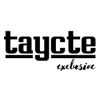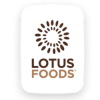Leftovers is our look at a few of the product ideas popping up everywhere. Some are intriguing, some sound amazing and some are the kinds of ideas we would never dream of. We can't write about everything that we get pitched, so here are some leftovers pulled from our inboxes.
Fat Tire toasts the environment
As beer lovers popped open a can of their favorite brew last Friday to celebrate International Beer Day, New Belgium Brewing’s Fat Tire Amber Ale was toasting the environment.
The beer was certified as America’s first nationally distributed carbon neutral beer by SCS Global Services, which does third-party environmental and sustainability testing and certification.
The recognition comes as part of New Belgium’s larger corporate sustainability goal to become fully carbon neutral across its entire operation by 2030. In recent years, the brewer has embraced renewable energy, powered the brewery with wind, and produced electricity with solar and biogas technology to curtail carbon emissions. It also created the first carbon footprint study for beer.
“Make no mistake, the climate crisis is an economic and health crisis far greater than the one we’re experiencing now,” Steve Fechheimer, New Belgium Brewing’s CEO, said in a statement. “The future of beer — and everything else — depends on it.”
Also to commemorate International Beer Day, New Belgium raised the price for Fat Tire six-packs to $100 — a ten-fold increase — to highlight how disruptions to agriculture from climate change could affect the price of beer.
“Given that beer is the number one alcoholic beverage of choice in the US, this certification and New Belgium’s International Beer Day initiative could be instrumental in helping to educate Americans about the importance of supporting strong climate action,” David Jonas, program manager of climate consulting services at SCS, said in a statement.
While other alcohol companies have implemented measures to highlight climate change or reduce their environmental footprint, few have gone as far as New Belgium.
Global beer giant AB InBev’s Anheuser-Busch is spending millions and working closely with farmers to find the next rice, hops and barley varieties that either can be grown with less water or are more resilient to diseases. Others have turned to more sustainable packaging, such as Carlsberg’s bio-based, fully recyclable beer bottle. And Diageo partnered to create a plastic-free paper-based spirits bottle, made entirely from sustainably sourced wood.
As craft breweries struggle amid growing competition and headwinds from the coronavirus pandemic, they can no longer depend on novel flavors or clever names to survive. By focusing on climate change, New Belgium could give itself an extra advantage in the ever-changing beer space.
— Christopher Doering

Flora Plant Butter spreads into the United States
After decades of success in many major markets around the world, Upfield’s Flora Buttery Spread is coming to the United States — but with some changes that make the spread right on trend.
The brand’s U.S. product is called Flora Plant Butter, and it’s made from a blend of palm, sunflower and canola oils. It comes in an 8.8-ounce brick in salted and unsalted varieties. The spread is wrapped in parchment paper, adding to its sustainability.
Flora has had a long history throughout the world. According to Flora’s South African brand website, it was developed by Unilever in the 1960s to create a healthier alternative to existing butter and margarine. Flora was part of the spreads division Unilever sold to private equity firm KKR & Co. for $8.03 billion in 2018. Upfield was then established as a spinoff of KKR. So far, the company concentrates in buttery spreads, also producing U.S. stalwart brands Country Crock and I Can’t Believe It’s Not Butter. According to Upfield’s website, Flora is currently the top selling spread in the U.K.
Upfield seems to have been preparing for this particular on-trend launch for more than a year. Last March, the company announced it had reformulated Flora to make it completely plant-based — a necessity to call the product “plant butter.” Plant Butter first hit markets in Austria last October, and a U.K. launch is planned for next month.
With the plant-based and eco-friendly branding, Flora is likely to be attractive to U.S. consumers. It’s a good marketing move for Upfield. According to The Economist, margarine sales in North America have been steeply declining. Last month, Upfield CEO David Haines told Financial Times that his company hopes to shift the perception of its products from stodgy butter substitutes to sustainable plant-based staples with clean labels. Sales of Flora Plant Butter in the United States will help show if that theory is one that can come into bloom.
— Megan Poinski

Fall comes early with Pumpkin Spice Hard Seltzer
The pandemic has forced the industry to shift many of its plans, but it isn't stopping companies from launching fall products before the season changes.
Vive Hard Seltzer is launching a Pumpkin Spice Hard Seltzer next month, according to a release. Consumers can try the new flavor on shelves at Kroger stores throughout Ohio, Kentucky and Tennessee for $9.99 per six pack.
"There are few other products where a flavor profile and a customer base align so directly, that we wanted to be sure that we nailed the flavor," Jake Rouse, co-founder and CEO at Braxton Brewing Company, said in a release. "VIVE Pumpkin Spice is likely going to be laughed at initially, but when you try it, you’ll quickly understand why we’re thrilled to launch!”
Braxton Brewing Co., the maker of Vive, has had success lately. It was recently named to the Inc. 5000 list of fastest growing private companies. The company said in the release that it is competing nationally with hard seltzer brands with "deeper pockets, broader resources and more consumer recognition."
The beer category has struggled in recent years with lagging sales and shifting consumer demands. As a result, companies have turned to trendier alcoholic beverages to boost their bottom lines. Last summer, hard seltzer was a major hit. The category saw so much growth in such a short period of time that White Claw, the top selling hard seltzer brand, faced a shortage.
Vive's new hard seltzer will have major competition in the category. The spiked seltzer segment has seen exponential growth in the last year as more companies, from MillerCoors to AB InBev, are launching new drinks to keep up with the trend.
Vive’s pumpkin spice flavor may help it stand out in the crowded market. Pumpkin spice often attracts consumers around the fall season. Numerous products are already dropping featuring the seasonal flavor — even though it is still August.
— Lillianna Byington






















